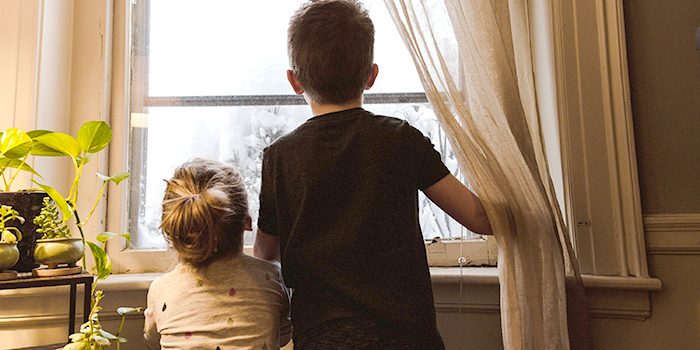Posted on March 18, 2020
COVID-19

Share
Other Blog Topics
In a whirlwind of events, families are finding themselves quarantined at home with their children for an unknown period of time due to the threat of COVID-19 (coronavirus).
Schools are closed with little opportunity to prepare for continuing education from home. Outside activities and opportunities for recreation outside the home have come to a complete stop. The future is uncertain in so many ways. How can a family adjust to these circumstances and continue to thrive? How can parents soothe and calm their children amidst the chaos?
Talk with them about the “germ” or “virus” that is causing some people to be sick. The conversation may go like this:
“Some people are very sick, some people are not very sick. The germ can jump from person to person. That is why we are staying away from places where there are people, so we don’t get sick. If we do get sick, we will do what we need to do to get well.”
They will likely ask if people are dying with this, and the true answer is:
“Yes, but not very many. That is why we are all doing what we can to stay well and help other people stay well. This will go away. We just don’t know when. But for now, we (your parents) will do what we need to do to keep everyone healthy.”
This conversation should be thought out by parents ahead of time. A time should be set aside to have the conversation with the kids with no distractions. Parents should ask if there are any questions, and attempt to answer. If you don’t know the answer, let the child know you will try to find out.
It is also important during this time to limit their exposure to information about the virus on news programs, social media, the internet, etc. Reports may not be accurate and the child simply may not understand. If your child has access to social media, they will encounter many horror stories. It may be necessary to limit their access or to take time each day to talk with the child about what they are hearing from others.
Assure them, that you (their parents) are doing what needs to be done. They may need frequent reassurance about this. If they ask if you are afraid, be truthful as well. If you are afraid (and who isn’t?) let them know that you believe that God will take care of the family and that you put your trust in Him. Have scripture verses ready to post on the refrigerator or other prominent place that they can read, or simply quote scripture often to them. Deuteronomy 31:8; John 14:27; Joshua 1:9; Matthew 6:34; Psalm 34:4; or Romans 8:38-39 to name just a few.
Seek God’s wisdom and guidance. Ask the kids what or who they would like to pray for and incorporate these concerns in your prayers. If one of your children is particularly upset, mention them specifically in your prayers and ask that God comfort them. Make prayer and devotions a daily, if not twice daily, practice.
As parents, decide what a day should look like with the children. Make a schedule and post it for each day. Establish or reinforce a standard time to get up and go to bed, to eat regular meals and to have snack times.
Create a workspace for each child to work on age appropriate school work. Try a time frame of 30-45 minutes, then switch to another subject or activity to keep things interesting. Incorporate art, music, physical exercise and recess. Their school may provide academic suggestions. There are many websites that can be used to print off worksheets or suggest subject matter to work on.
Reading silently and aloud daily is always a great choice! Consider sprinkling in “Special Days” like a beach day, where everyone dresses in their bathing suits and eats lunch on a beach towel on the porch. The possibilities are endless!
Children can’t always verbalize their concerns. Parents may notice more irritability, tears, regression to an earlier stage such as bedwetting, baby talk, or trouble paying attention or concentrating. These behaviors can be symptoms of distress. Address each of the behaviors with understanding and flexibility. It may be helpful to consult with a counselor or therapist who treats children if the behavior continues.
These are uncharted waters for parents. Remember to seek comfort and support with one another and with trusted friends. These are times when what, and who, is most important in life can become very clear. This is a time when turning to faith is the most critical and helpful action parents can take. As you think about your own children, remember whose child you are, the child of The Most High, who won’t forsake you or your family.
If you are struggling during this time of uncertainty and need a professional counselor to speak with, Lutheran Family Service offers digital mental health counseling through your smartphone or computer. Contact us today at: https://lutheranfamilyservice.org/contact/
Toni Larson, LISW
Director of Counseling for Lutheran Family Service
More posts about COVID-19